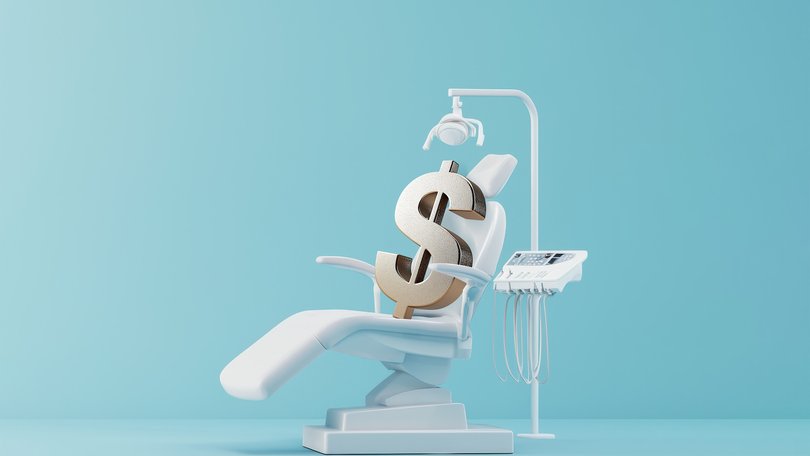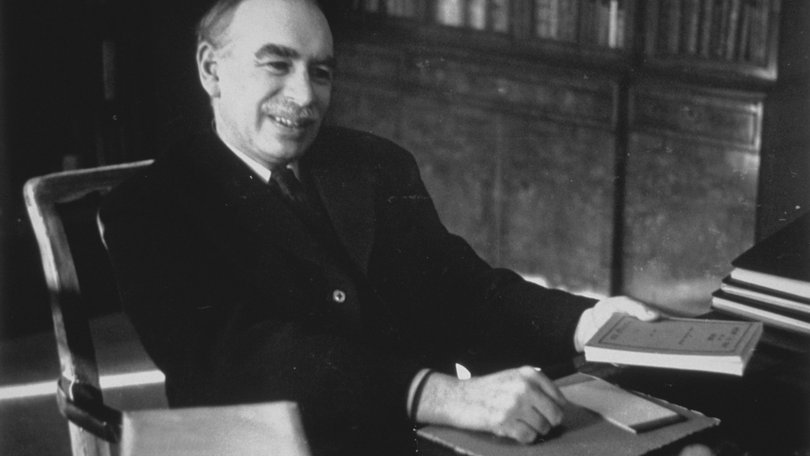THE ECONOMIST: Money really can buy happiness. Checking up on your life choices is a prescription for success
THE ECONOMIST: Forget your trip to the dentist — a new type of specialist care may be needed.

Time for your annual check-up. After what feels like an eternity in the waiting room, flicking through dog-eared copies of the world’s finest publications (did you know Indonesia is at a crossroads?), your name is called at last.
A smiling professional awaits you, only this time the room smells not of disinfectant, but of the solvents used in whiteboard markers. Instead of a fold-out bed, there is a Bloomberg terminal behind the modesty curtain in the corner, flashing green or red with every tick of the market. The economist will see you now.
Economists should behave in a manner that would lead the public to think of them as humble, competent people akin to dentists, wrote John Maynard Keynes, a not-very-humble economist. If they could get the public to see the profession as being on a similar level to their white-coated peers, he wrote, that would be a splendid thing.
Sign up to The Nightly's newsletters.
Get the first look at the digital newspaper, curated daily stories and breaking headlines delivered to your inbox.
By continuing you agree to our Terms and Privacy Policy.Keynes was referring more to a technocratic consensus about how to run the economy, rather than to the sort of personalised care and attention provided by a medical professional.
But what if the profession took his idea both seriously and literally? Could a trip to the economist make your life better?
On arrival, the first question is what seems to be the matter: income or happiness? The good news is that more money should make you jollier.

Although economists once worried there was a point at which gains to emotional well-being from higher incomes plateaued — a study in 2010 pegged it at $US75,000 ($US110,000 or $168,000 today) — research by Matthew Killingsworth of the University of Pennsylvania has overturned this idea.
He finds that for all but a small minority, wellbeing typically increases along with income, and that there is no upper limit to the trend.
Modern economic research therefore confirms that Kingsley Amis, a British novelist, was correct when he wrote there is no end to the ways in which nice things are nicer than nasty ones.
But even if there was a point at which more money did not make you happier, the vast majority of an economist’s patients would still benefit from earning more in other, non-happiness-related ways. Better the economist focuses on the tangible and leaves the transcendental to the priest.
With many patients, the economist might take a look at their chart and tut, I wouldn’t start from here. A person’s place of birth has the biggest impact on their life outcomes.
The 83 per cent of the world’s population who live in non-rich countries hold a bad hand. At least the prescription is simple: move if you can. Returns to migration are sky-high.
A paper in 2016 by Michael Clemens, then at the Centre for Global Development, Claudio Montenegro of the World Bank and Lant Pritchett, then of Harvard University, calculated the benefits of moving from the poor world to America for a typical 30-year-old man with a secondary education.
They came to $US14,000 or so a year, adjusting for the different price levels. Such benefits are also likely to be passed down to any offspring. Indeed, the puzzle among economists is why so few people move rather than so many. (Border fences explain only so much.)
The rest of the advice will depend on how old you are and what has already gone wrong. A handful of big decisions — whether to go to university and what to study, what career you pursue, whether to start a family and with whom — matter more than others.
A college education is usually a good bet. In 2020 the Institute for Fiscal Studies, a British think-tank, found that, after accounting for individual characteristics and taxation, university leads to a typical bump of 20 per cent in lifetime earnings.
But the returns depend on what you study: entrants to creative arts courses can expect no financial benefits. Male medics and economists both enjoy a lifetime wage increase of around £500,000 ($1.03 million).
An economist should point out that, although wages do vary widely between occupations, a rising share of the variation is explained not only by what you do but by the company for which you work.
Best, then, to get a job at a superstar employer. Unionised companies may pay more than their non-unionised counterparts, but if you are a high-flyer you might want to opt for the latter. Unions tend to ensure that low performers get paid more while high performers get paid less.
When it comes to relationships, later marriages are typically more stable, but much of this is what an economist might call a selection effect.
The timing of marriage has little effect in itself — instead, the pattern reflects the type of person who waits for just the right partner. Research also suggests that it may be better to delay having children, and in this case it might not be a selection effect: the later a woman’s career break, the smaller the impact on her lifetime earnings.
For older patients, the economist has less advice. Saving for retirement is more valuable the earlier you start. The economist might get out their whiteboard markers for an impromptu refresher on compound interest for youngsters.
Older folk do not have much time to improve their earning power, so they should focus on becoming happier instead. Loneliness is the big risk. Perhaps a second degree in the creative arts could help?
Nine out of ten economists recommend . . .
All of this comes with a caveat: economic research tends to deal in averages. Much of the advice will be generic, rather than tailored to the individual. So, too, is a dentist’s: brush your teeth, floss regularly, avoid sugar and do not smoke. But the dentist at least can carry out remedial work and fix things after they have gone wrong.
The economist has few tools to fill in career gaps or polish a grubby CV. They can provide some helpful guidance to those who lose their jobs — retraining is helpful but think carefully about the precise course; if the whole region is suffering then those who move earlier are likely to suffer the least — but little in the way of direct help. To live up to Keynes’s metaphor, economists need more than data. They need drills.
Originally published as An economist’s guide to big life decisions
